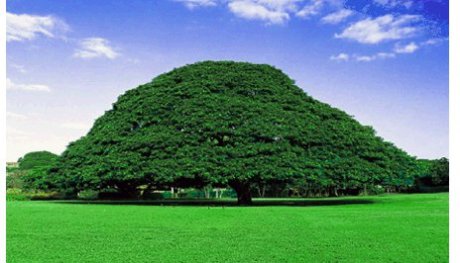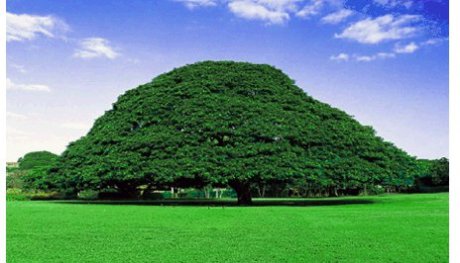

‘The international community’s failure to demonstrate strong opposition to the antidemocratic trajectory of many African countries is allowing authoritarian heads of state to gain more power and influence. The United States should single out and prioritize the needs of the few African leaders working to comply with international law and to promote democratic governance domestically and regionally. One way Washington can do this is by acknowledging and giving preference to the democratic states participating in the U.S.-Africa Leaders’ Summit next week. If current trends are not thwarted, the future of the continent could fall under the control of a resurgent “Dictators’ Club.”’
“Repressive leaders are also copying one another’s laws, which collectively undermine basic freedoms for the continent’s citizens. In 2009, Prime Minister Meles Zenawi of Ethiopia enacted the Anti-Terrorism Proclamation and the Charities and Societies Proclamation, which essentially aimed to eliminate independent civil society activity. Within a few years, Presidents Yoweri Museveni of Uganda and Uhuru Kenyatta of Kenya had introduced nearly identical laws, which are muzzling the work of human rights defenders, the independent media, local journalists, and members of the political opposition across East Africa.”

Reemergence of the African Rat Pack
Alyssa Rickard, Program Associate, Africa Programs
Freedom House.
(Freedom House, 30 July 2014)The reemergence of unconditional solidarity among Africa’s incumbent leaders is threatening respect for human rights and good governance throughout the continent. The phenomenon is obviously bad for the people of Africa and for the overall progress of democracy. But the worst consequence of many African leaders’ support for even their most authoritarian colleagues is the growing regional acceptance—and in some cases promotion—of deeply repressive policies.
Strong bilateral relationships in Africa, for instance between Presidents Jacob Zuma of South Africa and Robert Mugabe of Zimbabwe, are undercutting domestic and regional democratic frameworks. In Zimbabwe’s 2013 election, Zuma—acting as the chief election facilitator for the Southern Africa Development Community (SADC)—disregarded his obligation under the organization’s Principles and Guidelines Governing Democratic Elections to maintain neutrality by publicly rebuking a technical team for questioning the election preparations. Zuma then endorsed Mugabe’s reelection on behalf of SADC, even when clear evidence of vote rigging emerged, which Botswana cited as another violation of SADC’s guidelines. Nevertheless, Zuma stood by his counterpart in Zimbabwe, bolstering the idea that the region’s entrenched leaders can rely on one another in their efforts to maintain power, even if this means violating their own democratic standards.
This type of solidarity in Southern Africa has extended beyond domestic affairs to include limiting citizens’ access to justice on a regional level, as clearly demonstrated by the disbandment of the SADC Tribunal, launched in 2005 to enforce the SADC Treaty. The tribunal’s fate was sealed when it ruled that Zimbabwe’s seizure of land from white farmers without compensation was illegal and discriminatory. Mugabe refused to obey the decision, challenging the court’s authority and paving the way for its suspension in 2010. Despite the best efforts of civil society groups in the region, Southern Africa’s heads of state sided with Mugabe and voted to remove the individual mandate of the court, meaning victims of state abuse could no longer file cases against their governments. Not only was this a blow to human rights protection, but it also discouraged private-sector investment, as property owners would have no legal recourse beyond national courts. Once the SADC court ruled against the big man’s interests, political imperatives suddenly took precedence, and legal order was sidelined.
Repressive leaders are also copying one another’s laws, which collectively undermine basic freedoms for the continent’s citizens. In 2009, Prime Minister Meles Zenawi of Ethiopia enacted the Anti-Terrorism Proclamation and the Charities and Societies Proclamation, which essentially aimed to eliminate independent civil society activity. Within a few years, Presidents Yoweri Museveni of Uganda and Uhuru Kenyatta of Kenya had introduced nearly identical laws, which are muzzling the work of human rights defenders, the independent media, local journalists, and members of the political opposition across East Africa.
A similar contagion effect occurred after the signing of what UN High Commissioner for Human Rights Navi Pillay referred to as “a piece of legislation that in so few paragraphs directly violates so many basic, universal human rights.” Nigeria’s Same-Sex Marriage Prohibition Act, signed early this year, went far beyond other anti-LGBTI laws by banning association with or operation of “gay” organizations. Instead of pushing back, many of the continent’s leaders supported Nigeria with their own repressive measures, including the signing of an “anti-homosexuality” bill in Uganda, the introduction of a draft law to criminalize gay and transgender people in the Democratic Republic of the Congo, the launching of a parliamentary caucus to ensure the implementation of anti-LGBTI laws in Kenya, and the refusal of justice for victims of homophobic attacks in Cameroon. Many argue that this is not surprising given the preceding rise in homophobic rhetoric from many African leaders, but since the Nigerian bill was enacted, attacks against LGBTI people across the continent have increased, even in more tolerant countries such as Côte d’Ivoire and Sénégal. Nigeria’s leadership catalyzed a steep regression for the protection of LGBTI individuals that could take decades to reverse.
Big-man interests are also driving a movement to withdraw en masse from the International Criminal Court (ICC), which would enable impunity for mass atrocities. Urged on by President Kenyatta, who is currently accused of crimes against humanity at The Hague, the African Union (AU) held a special meeting in October 2013 to discuss an ICC withdrawal. Due to the efforts of countries like Botswana, Côte d’Ivoire, Mali, and Sénégal, the AU rejected the proposition, but Kenyatta succeeded in obtaining a resolution calling on the ICC to postpone his trial and to exempt sitting heads of state from international prosecution. As if this were not enough, an amendment to the newly established Protocol on the Statute of the African Court of Justice and Human Rights was adopted at a June 2014 summit, giving immunity to African heads of state and senior government officials (yet to be defined) at what was supposed to be the continent’s new regional human rights court.
If the immunity amendment to the African court’s statute is ratified by AU member states, leaders will not be deterred from committing the same crimes of the past, and African citizens will have one less option for protection against human rights abuses. Furthermore, the amendment is entirely at odds with the normative frameworks already ratified by the AU member states to protect human rights, including the African Charter on Democracy, Elections, and Governance and the African Charter on Human and Peoples’ Rights. Compliance with and enforcement of these frameworks are the best hope for strengthening democratic governance in Africa. However, these treaties, laws, and protocols will be useless if authoritarian leaders succeed in working together to ignore and actively undermine them.
It is therefore extremely important for countries like the United States to work actively with their African partners to uphold democratic principles on the continent. The international community’s failure to demonstrate strong opposition to the antidemocratic trajectory of many African countries is allowing authoritarian heads of state to gain more power and influence. The United States should single out and prioritize the needs of the few African leaders working to comply with international law and to promote democratic governance domestically and regionally. One way Washington can do this is by acknowledging and giving preference to the democratic states participating in the U.S.-Africa Leaders’ Summit next week. If current trends are not thwarted, the future of the continent could fall under the control of a resurgent “Dictators’ Club.” Read @http://freedomhouse.org/blog/reemergence-african-rat-pack#.U9lHW9JDvys






 Working Group Must Address Trade Misinvoicing and Role of U.S. Business and Government in Facilitating Illicit Finance to Be Truly Effective, Warns GFI
Working Group Must Address Trade Misinvoicing and Role of U.S. Business and Government in Facilitating Illicit Finance to Be Truly Effective, Warns GFI
